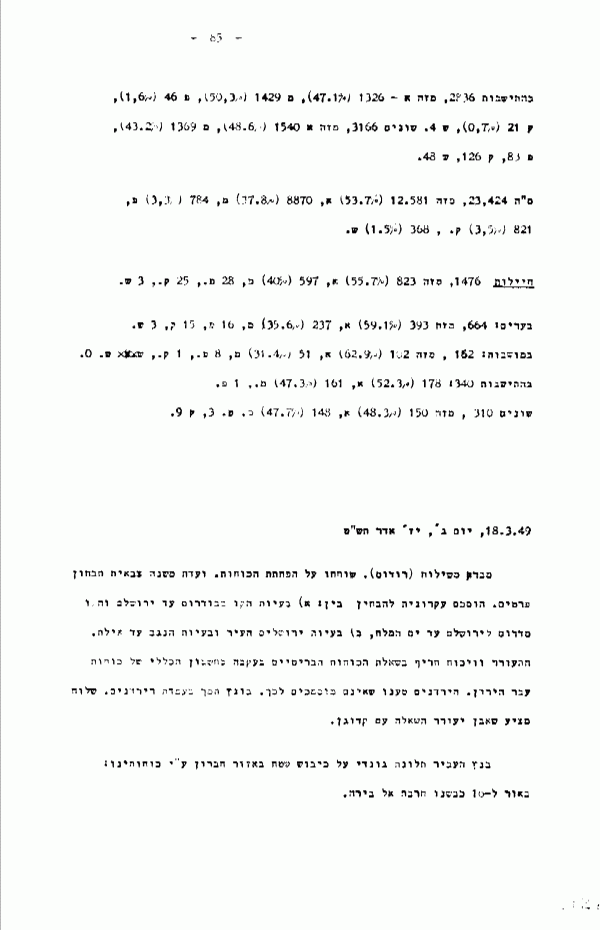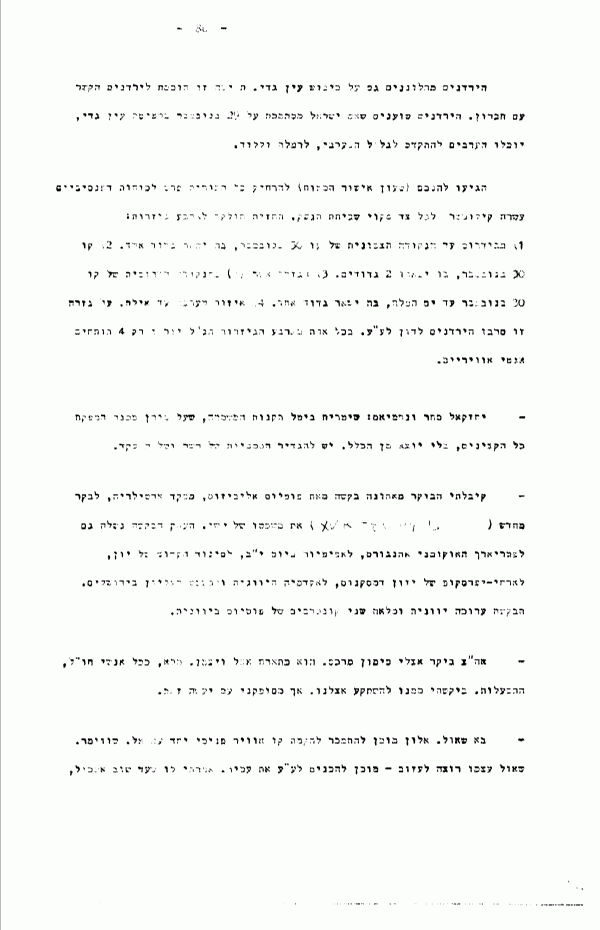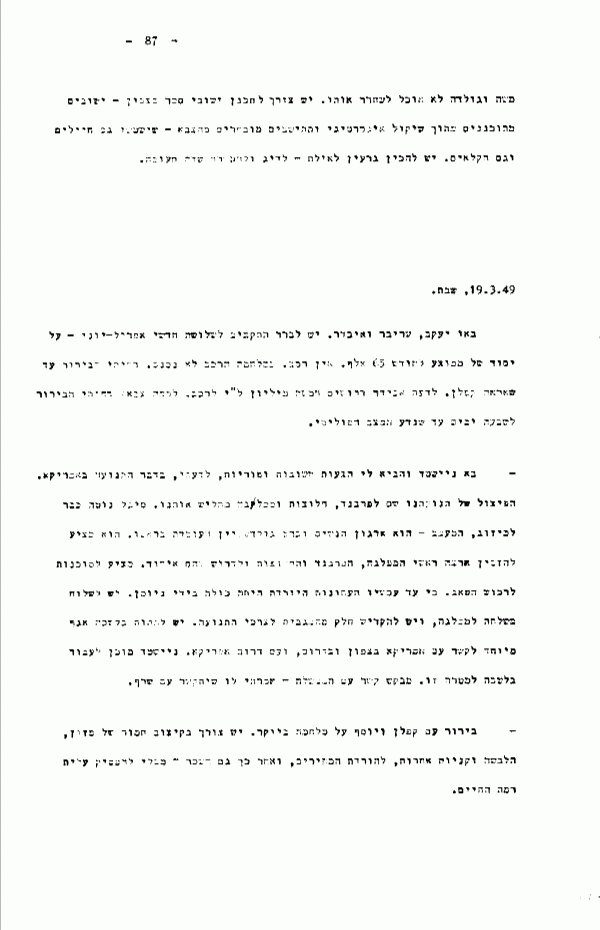Friday, March 18, 1949
Cable from [Reuven] Shiloah (Rhodes). They discussed a reduction of forces. A military subcommittee will examine the details. In principle it was agreed to differentiate between: A) problems involving the line from Budrus to Jerusalem and the line from south of Jerusalem to the Dead Sea, B) problems involving the city of Jerusalem and problems involving the Negev to Eilat. A fierce argument erupted regarding the British forces in ''Aqaba. Our people demanded that the British forces in ''Aqaba be included in the overall count of Transjordan's forces. The Jordanians argued that they aren't authorized [to accede]. Bunche supported the Jordanian position. Shiloah proposes that [Abba] Eban [Israel's representative at the UN] raise the issue with Cadogan [British representative to the Security Council].
Bunche conveyed [Transjordanian representative, Colonel Ahmad Sidqi Bey al-] Jundi's complaint regarding our forces' conquest of territory in the Hebron region: in the morning of the 16th we conquered Khirbet al-Bira.
The Jordanians are also complaining about the conquest of ''Ein Gedi. This capture blocks the Jordanians' connection to Hebron. The Jordanians argued that if Israel relies on the November 29 [UN resolution] with regard to the capture of ''Ein Gedi, then the Arabs can advance to the Western Galilee, Ramle, and Lod.
They reached an agreement (pending approval by the [military] staffs) to pull back all forces aside from defensive forces, 10 km from the armistice lines on each side. The front was divided into four sectors: 1) from Budrus to the northernmost point of the November 30 [1948] line, where one battalion will remain. 2) the November 30 line, where 2 battalions will remain. 3) the sector from the southernmost point of the November 30 line to the Dead Sea, where one battalion will remain. 4) the area from the ''Arava to Eilat. The Jordanians refused to discuss the sector for now. Only 4 anti-air cannons will be a allowed in each of the above sectors.
- Yehezkel Sahar [inspector-general of the Israel Police] and [Yosef] Nachmias [his deputy]. [Minister of Police Bechor] Sheetrit rescinded the police regulations whereby the inspector appoints all the officers without exception. The authorities of the minister and the inspector need to be sorted out.
- This morning I received a request from Athens, from Photios Elibizous [sp.], artillery commander, to revisit Jesus's trial. A copy of the request was also sent to the ecumenical patriarch Athenagoras, Pope Pius XII, the Holy Synod of Greece, the Archbishop of Greece Damaskinos, the Greek Academy, and the Supreme Court in Jerusalem. The request was prepared in Greek and filled two pamphlets by Photios [?] in Greek.
- In the afternoon Simon Marcus [sp.] visited me. He's being hosted by Weizmann. Like everyone from abroad, he's full of wonder. I asked that he settle down here. I doubt he'll do it.
- Shaul [Avigur] came. Alon [Yehuda Arazi] is prepared to devote himself to establishing a domestic air route, along with Al Schwimmer. Shaul himself wants to leave - he's willing to bring in [Yisrael] Amir for now. I told him that until [Levi] Eshkol, Moshe [Sharett], and Golda [Meir] return, I cannot release him. It's necessary to plan frontier settlements in the north - settlements are also planned out of strategic considerations and are to be settled by select army personnel, who will serve as both soldiers and farmers. A gar'in [core group for settlement purposes] needs to be formed for Eilat - for fishing and preparation of an airfield.











